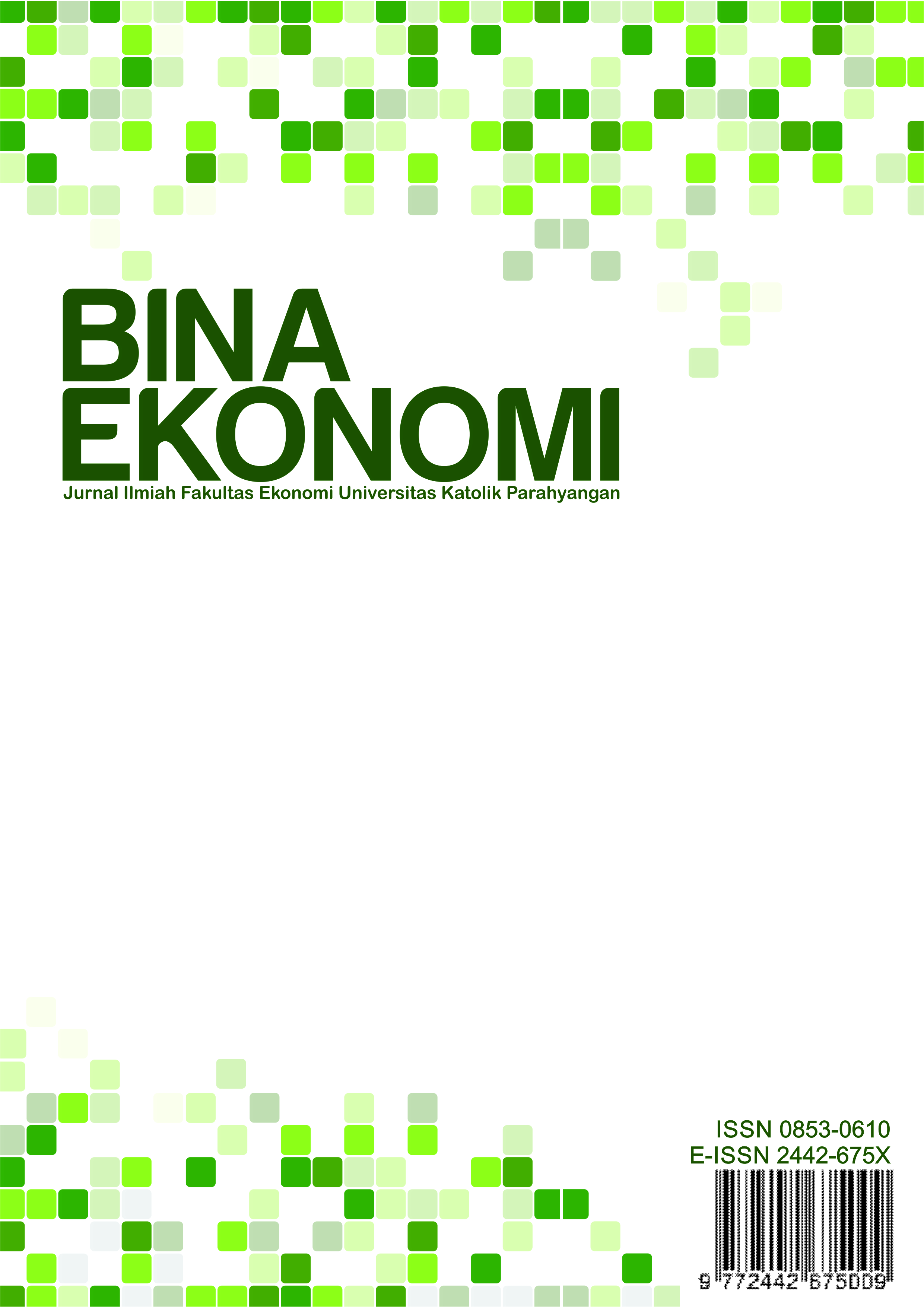EFFECTS OF FISCAL REDISTRIBUTION ON GENDER DEVELOPMENT IN INDONESIA: AN ANALYSIS OF THE CHARACTERISTICS OF FISCAL ACCEPTANCE
DOI:
https://doi.org/10.26593/be.v28i2.7328.155-164Keywords:
fiscal redistribution, fiscal receipt, gender development, GMMAbstract
Indonesia is still ranked 104th in the world in terms of gender development and is below other ASEAN countries namely Singapore, Malaysia, Viet Nam, and the Philippines. The purpose of this study is to analyze how fiscal redistribution influences gender development through different characteristics in each fiscal revenue with the GMM method. The results show that Gross Regional Domestic Product is influenced by Locally-Generated Revenue, General Allocation Fund, and Tax Sharing. While Specific Allocation Fund and Natural Resources Revenue Sharing worsen Gross Regional Domestic Product. But in the long run, all the effects that worsen Gross Regional Domestic Product are corrected and have an impact on increasing Gross Regional Domestic Product in Indonesia. Then Gender Development Index is influenced by Gross Regional Domestic Product, Locally-Generated Revenue, and General Allocation Fund, while the role of Specific Allocation Fund and Tax Sharing worsens Gender Development Index but in the long run, will increase and increase Gender Development Index. The different types of fiscal revenues also influence the Gender Development Index response as a consequence of the unique characteristics of each fiscal revenue variable. Our suggestion is that local tax sources paid to the center allocated through the balance fund need to consider gender aspects.
References
Ali, Mahnaz Muhammad, et al. (2023). Impact of Intergovernmental Fiscal Transfers on Gender Inequality: An Emperical Analysis for Pakistan Economy. Journal of Positive School Psychology. Vol. 7, Issue 1. Pp 180-188.
Anderson, Thomas, Hans-Peter Kohler. (2015). Low Fertility, Socioeconomic Development, and Gender Equity. Population And Development Review 41(3): 381–407 (September 2015). Available on wileyonlinelibrary.com/journal/pdr.
Asean Commision on The Promotion and Protection of The Rights of Wowen and Children. (2016). Progress Report On Women’s Rights and Gender Equality. Jakarta : ASEAN Secretariat. Available on www.asean.org
Barnat, Nour, Steve MacFeely, and Anu Peltola. (2019). Comparing Global Gender Inequality Indices: How Well Do They Measure the Economic Dimension? Journal of Sustainable Research. Available on DOI: 10.20900/jsr20190016.
Bird and Vaillancourt. (2000). Fiscal Decentralization in Developing Countries. New York : Cambridge University Press. Available online at https://pdfs.semanticscholar.org
Cabeza-Gracia, Laura, et al. (2018). Gender Factors and Inclusive Economic GrowthL The Silent Revolution. Available online on doi:10.3390/su10010121
Chakraborty, Lerkha and Piyush Gandhi. (2019). Impact of Intergovernmental Fiscal Transfers on Gender Equality in India: An Empirical Analysis. TPPI-Working Paper Australian National University Crawford School pf Public Policy. Available online on https://ssrn.com/abstract=3328263
Chakraborty, Lerkha. (2019). Federal fiscal policy effectiveness and Inequality: Empirical evidence on
Gender Budgeting in Asia Pacific. National Institute of Public Finance and Policy New Delhi Working paper series No 237. Available on www.nipfp.org.in/publications/working-papers/1868/
Diebolt, Claude, Auke Rijipma, Sarah Carmichael, Selin Dilli and Charlotte Stormer (Editor) (2019). Stidies in Economic History- Cliometrics of The Family. Switzerland : Spinger. Available on http://www.springer.com/series/13279
Gabriela, I. et al. (2015) ‘The Distributional Impact of Fiscal Policy in South Africa’, IMF Working Papers, 08(168), p. 1. doi: 10.5089/9781451870268.001.
Gujarati, Damoar N dan Dawn C. Porter. (2015). Dasar-dasar Ekonometrika Edisi 5 buku 2. Diterjemahkan oleh Eugenia Mardanugraha, dkk. Jakarta Selatan : Salemba Empat.
Inchauste, Gabriela. et. al. (2015). The Distributional Impact of Fiscal Policy in South Africa. Policy Research Working Paper 7194. Poverty Global Practice Group & Macroeconomics and Fiscal Management Global Practice Group Februari 2015.
Kim, Jinyoung, Jong-Wha Lee, and Kwanho Shin. (2016). Gender Inequality And Economic Growth In
Korea. Pasific Economic Review. Available on doi: 10.1111/1468-0106.12181
Lusting, Nora dan Higgins. (2013). Commitment to Equity Assesment (CEQ): Estimating the Incidence of Social Spending Subsidies and Taxes. Handbook. CEQ Working Paper No1. Center for Inter-America Policy and Research and Departement of Economics, Tulane University and Inter-American Dialogue, September.
Mukherjee, Shyama Prasanna. (2019). Impact of Roads and Road Transport on Human Development Index
and Gender Development Index of Fringe of Raipur City. The Research Journal of Social Science. Available on www.aensi.in/Index
Sangaji, Joko, Miyasto, and Akhmad Syakir Kurnia. (2018). Macroeconomic Determinants of Gender Inequality Index in Eight ASEAN Countries. E3S Web Conference 73, 11002 (2018). Available on https://doi.org/10.1051/e3sconf/20187311002
UNDP. (2022). Human Development Report 2021/2022. Uncertain Times, Unsettled Lives: Shaping Our Future in A Transforming World. New York : UNDP. Available on https://hdr.undp.org/system/files/documents/global-report-document/hdr2021-22pdf_1.pdf
United Nation. (2023). Fiscal Panorama of Latin America and The Caribbean. Fiscal Policy for Growth, Redistribution and Productive Transformation. Santiago: United Nation Publication.
Verbeek, Marno. (2012). Guide to Modern Econometric-Fourt Edition. United Kingdom : John Wiley & Sons Ltd.
Vujadinovic, Dragica., et al. (2023). Gender-Competent Legal Education. Germany: Springer Publication.


